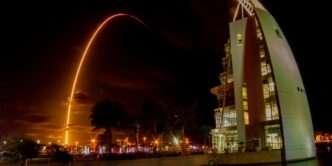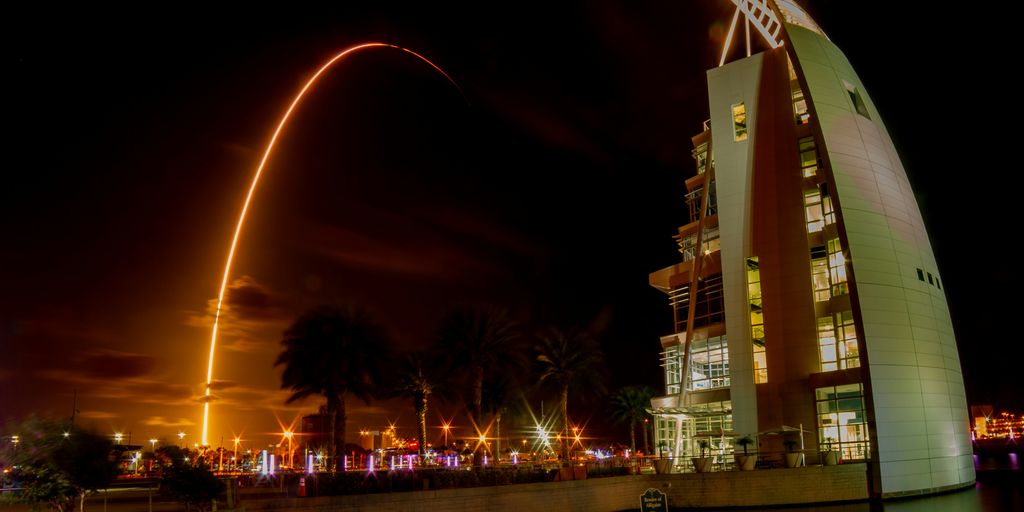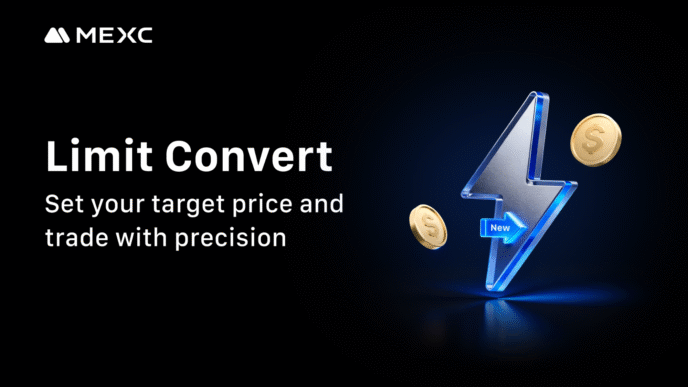Rocket Lab’s Neutron rocket is a pretty big deal. Everyone’s been waiting for it, and the company has been working hard. But, like with any big project, there have been some changes to when it’s actually going to fly for the first time. We’re going to talk about what those changes are, why they happened, and what it means for Rocket Lab and the space industry in general. It’s all about the rklb neutron launch date.
Key Takeaways
- The rklb neutron launch date has been pushed back to the second half of 2025, from an earlier mid-2025 plan.
- This delay is due to a mix of minor issues, not one big technical problem.
- The change in the rklb neutron launch date might affect Rocket Lab’s financial plans and how it stacks up against competitors.
- Even with the delay, experts are still positive about Rocket Lab’s long-term growth and its stock.
- The Neutron rocket is important for Rocket Lab’s future and its ability to compete for big space contracts.
Understanding the Initial rklb Neutron Launch Date Projections
Early Expectations for Neutron’s Debut
When Rocket Lab announced Neutron, there was a lot of excitement. The initial projections were pretty optimistic, with many people thinking we’d see the first launch sometime in late 2024. It felt like a quick turnaround, but Rocket Lab had a good track record with Electron, so there was a sense of confidence. The idea of a medium-lift rocket coming online that quickly was definitely appealing to the space industry.
Factors Influencing Original Timelines
Several things played into those early timelines. Rocket Lab’s existing infrastructure and experience with the Electron rocket were definitely factors. Plus, there was a lot of pressure to get Neutron up and running to compete with other companies. However, some of the initial projections might have been a bit too aggressive, especially considering the complexities of developing a brand-new rocket engine like Archimedes. It’s easy to underestimate the challenges involved in such a big project. Here are some factors:
- Supply chain stability
- Regulatory approvals
- Weather conditions for testing
Investor Anticipation for the rklb Neutron Launch Date
Investors were really watching the rklb Neutron launch date. A successful launch would be a huge win for Rocket Lab, opening up new markets and revenue streams. The stock price definitely reflected this anticipation, with a lot of speculation and movement based on any news or rumors about the launch schedule. Any hint of a delay would send the stock down, while positive updates would give it a boost. It’s a high-stakes game, and the launch date is a critical milestone for the company’s future.
Analyzing the Revised rklb Neutron Launch Date
Shift to Second Half of 2025
Originally, the plan was to see the Neutron rocket’s maiden flight sometime in mid-2025. Now, we’re looking at the latter half of the year. This shift, while not a massive delay, does have implications. Rocket Lab had a target in mind, and moving it back means reassessing strategies and managing expectations. It’s not uncommon in the space industry, but it’s still something to unpack.
Reasons Behind the Schedule Adjustment
So, what’s behind the change? A few things could be at play. Development snags are pretty normal when you’re building something as complex as a rocket. Maybe there were some unexpected challenges with the Archimedes engine, or perhaps the composite structures took longer than anticipated. Customer delays can also play a role. It’s a complicated dance of engineering, supply chains, and external factors. It’s also worth noting that Rocket Lab had projected 22 Electron launches in 2024, but due to customer delays, they might not hit that number. This kind of thing can ripple through the whole schedule.
Impact on Rocket Lab’s Financial Outlook
A delay like this inevitably affects the financial picture. Revenue from the Neutron system won’t be seen this year. Investors get a little antsy, and the stock price can take a hit. We saw this happen back in February when a report suggested the launch would be pushed back; RKLB shares dropped. Higher capital expenditures are also a concern. Rocket Lab is still not profitable, and spending on Neutron will increase costs. However, analysts still see the top line expanding, so it’s a mixed bag. It’s all about balancing short-term setbacks with long-term potential. The company secured more than $450 million in new contracts and made substantial progress on its Neutron rocket in 2024. Looking ahead, all eyes are on the debut launch of the Neutron rocket, now scheduled for the second half of 2025.
Implications of the rklb Neutron Launch Date Delay

Market Reaction to the Postponement
The delay in the rklb Neutron launch date has definitely stirred things up. When the news broke back in February, Rocket Lab’s share price took a hit, dropping around 10% in intraday trading. That’s a pretty significant reaction, showing how much investors were banking on Neutron’s original timeline. It’s not just about the delay itself, but also what it signals about the company’s ability to meet its goals. The market doesn’t like uncertainty, and delays create exactly that. It will be interesting to see how the stock performs as we get closer to the revised launch window.
Competitive Landscape and Market Positioning
This delay isn’t happening in a vacuum. Rocket Lab is facing some serious competition in the heavy-lift rocket market. SpaceX’s Falcon 9 is already a major player, and other rockets like ULA’s Vulcan and SpaceX’s Starship (both methane-fueled like Neutron) could potentially launch before Neutron does. This could give those competitors an edge in securing contracts and establishing themselves further. Neutron is designed to compete with these rockets, so any delay gives the competition more time to solidify their positions. It’s a race to space, and every setback matters.
Investor Confidence and Stock Performance
Investor confidence is a fragile thing, and delays like this can definitely shake it. The initial stock drop is just one indicator. The real test will be how Rocket Lab manages expectations and demonstrates progress in the coming months. If they can show that they’re addressing the issues that caused the delay and are on track for the new launch window, they might be able to regain some of that lost confidence. However, any further setbacks could lead to more volatility in the stock price. It’s all about managing the narrative and delivering on promises. Here’s a quick look at how delays can impact investor sentiment:
- Increased uncertainty about future revenue projections.
- Potential for decreased valuation due to delayed market entry.
- Heightened scrutiny of company’s execution capabilities.
Technical Progress Towards the rklb Neutron Launch Date
Advancements in Archimedes Engine Development
The Archimedes engine is really the heart of the Neutron rocket, and its development is a big focus. It’s a complex engine, and Rocket Lab is putting a lot of effort into testing and refining its design. The company is working through various test phases to ensure the engine meets the required performance and reliability standards for launch. It’s a process that takes time, and any hiccups along the way can definitely affect the overall timeline. It’s not just about building an engine; it’s about building an engine that can handle the stresses of spaceflight, and that’s no small feat.
Progress on Composite Structures
Rocket Lab is using composite materials for Neutron’s structure, which is pretty cool. These materials are lightweight but strong, which is exactly what you want in a rocket. The company is making progress in manufacturing these structures, but it’s a tricky process. You have to make sure everything is perfectly aligned and that there are no weak spots. It’s like building a giant puzzle, but with much higher stakes. Here’s a quick look at some key areas:
- Material selection and testing
- Manufacturing process optimization
- Quality control and inspection
Vertical Integration and Engineering Focus
Rocket Lab’s approach to building rockets is pretty unique because they do almost everything in-house. This vertical integration means they have a lot of control over the entire process, from design to manufacturing to testing. This can be a big advantage because it allows them to quickly make changes and solve problems. However, it also means they have to have expertise in a lot of different areas. The company’s engineering team is working hard to make sure everything comes together smoothly. It’s a big challenge, but if they can pull it off, it could give them a [competitive advantage](#ee70] in the space launch market. They’re not just assembling parts; they’re designing, building, and testing everything themselves. It’s a huge undertaking, but it shows their commitment to innovation and quality. Plus, it means they’re not as reliant on outside suppliers, which can be a big plus when things get complicated.
Analyst Perspectives on the rklb Neutron Launch Date
Continued Bullish Sentiment from Experts
Despite the revised launch date, many analysts remain optimistic about Rocket Lab’s future. The general consensus is that the delay is a temporary setback and doesn’t diminish the long-term potential of the Neutron rocket. Several firms have maintained their positive ratings on RKLB stock, viewing any dips as buying opportunities. They emphasize the company’s strong position in the space technology sector and the potential for significant growth once Neutron is operational. It’s worth noting that Rocket Lab’s existing business, including space technologies like solar panels and command software, continues to perform well, contributing significantly to their revenue.
Growth Opportunities Post-Launch
Analysts are particularly excited about the growth opportunities that Neutron will unlock. The rocket’s capabilities are expected to open doors to new markets, including National Security Space Launch eligibility, which could be a lucrative source of revenue. Furthermore, Neutron’s design, aimed at competing with heavy-lift rockets like SpaceX’s Falcon 9, positions Rocket Lab to capture a larger share of the satellite launch market. The company’s low-cost, mass-producible satellite is also seen as a potential game-changer, offering further avenues for expansion.
Here are some key areas analysts are watching:
- Neutron’s impact on market share in the heavy-lift sector.
- The success of Rocket Lab’s satellite production and its adoption by various industries.
- The company’s ability to secure contracts for national security space launches.
Price Target Adjustments for RKLB Stock
While most analysts maintain a bullish outlook, some have adjusted their price targets for RKLB stock to reflect the revised Neutron timeline and recent financial guidance. For example, some firms lowered their targets to $27 and $25, respectively, after a minor delay was announced. However, these adjustments are often viewed as short-term reactions, with analysts anticipating a rebound in the stock price as Rocket Lab progresses towards the Neutron launch. The average price target for RKLB stock remains positive, suggesting confidence in the company’s long-term prospects.
Strategic Importance of the rklb Neutron Launch Date
Neutron’s Role in Future Market Expansion
The Neutron rocket’s launch is more than just a single event; it’s a key step in Rocket Lab’s broader strategy for market expansion. Neutron is designed to handle larger payloads than Electron, opening up new opportunities in areas like deploying bigger satellite constellations and potentially even supporting future human spaceflight missions. This expansion is crucial for Rocket Lab to move beyond its current niche and compete in a wider segment of the launch market. The company’s ability to secure new contracts will depend on Neutron’s capabilities.
Competition with Heavy-Lift Rockets
Neutron is directly aimed at competing with established heavy-lift rockets, most notably SpaceX’s Falcon 9. This competition is significant because it forces innovation and drives down launch costs, benefiting customers. Rocket Lab’s approach with Neutron focuses on reusability and cost-effectiveness, aiming to provide a compelling alternative to existing options. The success of Neutron will depend on its ability to offer competitive pricing and reliability. Here are some key competitive factors:
- Payload capacity
- Launch frequency
- Cost per launch
Eligibility for National Security Space Launch
Gaining eligibility for National Security Space Launch (NSSL) missions is a major goal for Rocket Lab. NSSL contracts are highly lucrative and provide a stable revenue stream. To achieve this, Neutron must meet stringent requirements for security, reliability, and performance. Success in this area would significantly boost Rocket Lab’s financial prospects and solidify its position as a key player in the space industry. The company’s Neutron system is designed with these requirements in mind.
Financial Considerations Leading Up to the rklb Neutron Launch Date
Capital Expenditures and Cash Burn Projections
Okay, so let’s talk money. Building rockets isn’t cheap, and Rocket Lab’s Neutron is no exception. The company is definitely burning through some cash as they ramp up development. We’re talking about significant capital expenditures to get this thing off the ground – literally. It’s a balancing act, because they need to invest heavily now to reap the rewards later. The delay to the second half of 2025 probably stings a bit, since it means those expenses are extended. It’s worth keeping an eye on their cash burn rate and how they’re managing those costs. Rocket Lab isn’t profitable yet and spending on the Neutron will increase costs and keep the bottom line in the red, though the top line is seen expanding to $604 million this year, up a solid 39%.
Revenue Generation from Neutron System
Obviously, the big question is when will the Neutron actually start bringing in some money? Right now, it’s all outflow, no inflow. Once the Neutron is operational, it’s expected to be a major revenue driver, especially if it gets National Security Space Launch eligibility. The initial projections probably factored in revenue starting sooner, so the delay pushes that out. It’s not just about launching satellites; it’s about securing those big, long-term contracts that really move the needle. The company earlier projected 22 Electron launches in 2024, including two of a suborbital.
Overall Profitability Outlook for Rocket Lab
So, the million-dollar question: when does Rocket Lab become profitable? The Neutron is a key piece of that puzzle. Its success is pretty important for the company’s long-term financial health. The delay definitely throws a wrench in the works, pushing out the timeline for profitability. Investors are watching closely to see how Rocket Lab manages its finances and navigates this period. The resilience after a big move in the face of a tricky market is intriguing.
Here’s a simplified look at potential revenue impact:
| Year | Projected Revenue (Without Neutron) | Projected Revenue (With Neutron) |
|---|---|---|
| 2025 | $500 Million | $550 Million |
| 2026 | $600 Million | $750 Million |
Keep in mind, these are just hypothetical numbers, but they illustrate the potential impact of the Neutron on Rocket Lab’s bottom line. The RKLB stock is a hot potato, having had a huge run from last August into year-end.
Wrapping Things Up
So, what’s the takeaway here? The Neutron rocket’s launch date has shifted a bit, now looking like the second half of 2025. This kind of thing happens in the space world, and it’s not always a bad sign. Sure, some folks might worry about the money side of things, but Rocket Lab is still pushing forward with big plans. They’re working on some cool tech, and many experts still think the company has a bright future. It’ll be interesting to see how everything plays out as we get closer to that launch window.
Frequently Asked Questions
What is the RKLB Neutron rocket?
Rocket Lab’s Neutron rocket is a new, bigger rocket designed to launch heavier things into space. It’s meant to compete with other large rockets, like SpaceX’s Falcon 9, and will be used for putting satellites in orbit, sending cargo, and maybe even carrying people.
When is the RKLB Neutron rocket expected to launch for the first time?
The first launch of the Neutron rocket is now expected in the second half of 2025. This is a bit later than the company first thought, which was mid-2025.
Why was the Neutron launch date pushed back?
The main reason for the slight delay is that the company needed more time to work on the rocket’s parts, like its engine and body. These things take a lot of careful building and testing to get right.
How does this delay affect Rocket Lab’s money situation?
The delay means Rocket Lab will spend more money before the rocket starts making money. Investors might also worry a bit, but many experts still think the company will do well in the long run.
Do experts still think RKLB stock is a good buy?
Even with the delay, many experts who follow the stock still think Rocket Lab is a good investment. They believe the Neutron rocket will help the company grow a lot once it’s flying regularly.
Why is the Neutron rocket so important for Rocket Lab?
The Neutron rocket is very important for Rocket Lab’s future because it will let them launch bigger and more valuable things. This opens up new ways for them to make money, including working with the government on important space missions.














